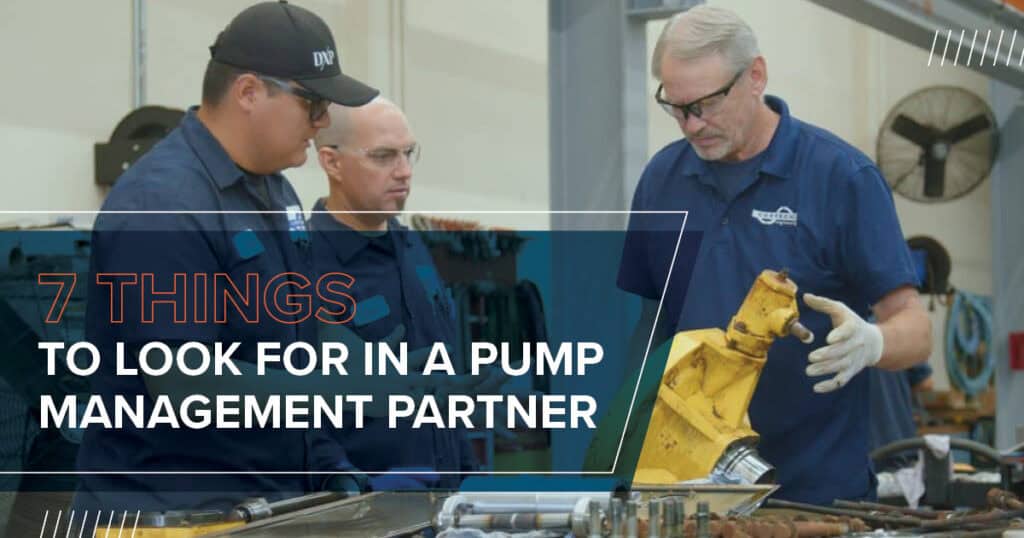Many important steps go into managing a fully optimized pump system. You have equipment selection, custom configurations, installation, training, maintenance, repair, and aftermarket upgrade needs if you want your pump to perform its best for many years to come. This is why so many companies and municipalities look for a reliable pump management partner to provide some or all of these services. The right expertise and professional support can go a long way in the continued success of any pump operation.
Here are some of the most important qualities you should look for when selecting a pump management partner:
1. Pump Expertise
This is obviously the most important quality. You need a pump service provider who knows the equipment—and your specific industry—inside and out. They understand which pumps are best for which applications and can select the best equipment for your operation. This level of knowledge and expertise should apply to all aspects of pump management. You should be able to rely on your service partner to provide the guidance and support you need to obtain the most out of your industrial pump system.
2. Dependable Service
Make sure your pump management partner has a reputable service record and can provide you with the correct support whenever and wherever you need it. They should have local representation in your area and partnerships with leading equipment manufacturers and parts suppliers. They should provide emergency repair and troubleshooting services. They should offer both in-shop and in-the-field services.
3. Personalization and Customization
The best pump management partners will tailor their services to meet your specific needs. No two pump applications are exactly the same. Your service provider should know your operation and pump application extensively to provide personalized support, custom system design, and optimized maintenance scheduling.
4. Troubleshooting Skills
A significant part of running a successful pump operation is being able to troubleshoot problems if and when they occur. Some issues can be caught and avoided in advance with a strong preventative or predictive maintenance strategy. Sometimes unexpected events happen, and you have to deal with emergency repairs. Your pump management partner should be able to efficiently identify and resolve any issues that arise.
5. Practical Knowledge and Technology
Some of today’s pump service providers rely too much on technology, while others are stuck in the past with old-fashioned methods. Ideally you want a pump management partner who brings the best of both worlds. They should have some old school knowledge and skills, with a deep understanding of manual processes. At the same time, you want someone who knows how to implement the latest technology when it is most advantageous to your operation. A combination of practical knowledge and high-tech optimization will go a long way in your continued success.
6. Quality Partnerships
Your pump management partner should have a vast network of professional partners. We’re talking about a variety of equipment manufacturers, parts suppliers, specialized service providers, and more. They should be able to assist with anything you need, exactly when you need it. This is where a great network comes in to give you the most comprehensive service experience possible.
7. Willingness to Answer Questions
As a client, you should never be afraid to ask a lot of questions. Issues arise, and situations can become confusing. Ask your pump management partner as many questions as you can when “interviewing” them for the job. Learn everything you can, and make sure they will be able to meet all of your needs. If they aren’t willing to answer your questions, they probably aren’t the best service provider for you.
To learn more about our comprehensive pump management services at DXP Pacific, contact us today. We are happy to answer any questions you have and tell you more about how we can meet your specific pump optimization needs.

